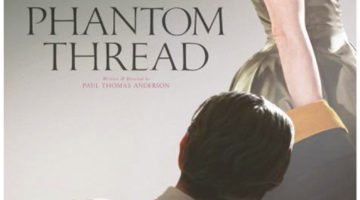
It’s been nearly fourteen years since The Incredibles premiered, giving audiences a classic Disney-esq interpretation of superheros, identity crisis and the importance of family. The sequel, which came out earlier this month on June 15, re-explores these themes along with new ones, all while giving us the nostalgia we’ve been waiting for.
Within the first fifteen minutes of The Incredibles 2 we learn that the Parr family has been living out of a motel and struggling to determine whether they should continue their crime-fighting lifestyle. While Bob Parr—Mr. Incredible—and his children seem to enjoy their superhero adventures, Helen—Elastigirl—argues that they should follow the law, which deems superhero activity illegal. This is especially crucial to their attempts at maintaining a normal life, since the Superhero Relocation Program has been defunded and can no longer protect the Parr family’s identities.
However, things take a dramatic twist when the Parr family and Lucius Best—Frozone— are contacted by a man named Winston Deavor. Deavor and his sister Evelyn are owners of a high-tech company called DEVTECH, and plan to recruit the three heros in a crime-fighting campaign that will regain public faith in superheros and have them legalized. Ultimately, it’s Helen who takes charge of the campaign over her male counterparts.
While Helen is off fighting bad guys and being “thicc”, Bob takes on the role of stay-at-home dad. He and Helen both have their fair share of adventures as they adjust to life opposite of the first film, in which Bob was the one performing heroic duties while Helen cared for the family at home.
It’s safe to say that while this film is certainly the sequel we’ve been waiting for, it doesn’t necessarily live up to the first film—as sequels usually turn out. Yet there are some new obstacles in The Incredibles 2 that teach us great life lessons, much like the original movie.
The trials of raising children, for one, are re-interpreted through Bob’s experiences as a stay-at-home father. He spends a majority of the film flustered as Violet struggles with boys and dating, Jack-Jack’s powers begin to manifest beyond control and Dash constantly needs help with his difficult math homework. There also seems to be some commentary on our obsession with technology, as Elastigirl’s main enemy in this film is Screenslaver—a person who hypnotizes and controls people through screens.
However, The Incredibles 2 feels eerily similar to the first movie, with only a few minor changes in character roles and plot details. It almost seems as though the creators wanted to remake the original movie, but with Elastigirl as the lead rather than Mr. Incredible. Perhaps this is an homage to the feminist movement, which has gained a substantial amount of traction since The Incredibles came out in 2004. Yet when it comes to the written plot and script, it almost just feels like lazy writing.
Many audience members have also criticized the franchise for the exploiting characters of color like Frozone and Edna. They claim that Frozone is type casted as a sidekick rather than a hero with a fully-realized identity, and Edna’s character is heavily reliant on comedy and even exoticism. Not only that, but Frozone’s wife—referred to as Honey—never makes an actual on-screen appearance. Instead, she gets a few seconds of screen time by yelling some funny lines at her husband from another room, much like the first movie. This is another example of how characters of color are seen as comic relief. Meanwhile, the “white savior” arc is portrayed through the Parr family.
Not to mention the vibrant flashing lights in the movie that were inducing seizures for people with epilepsy.
Despite these setbacks, the film also has an abundance of highlights and funny moments that make the bad decisions bearable. Jack-Jack, for one, has a much larger role in this film, as we see his superhero abilities come to fruition. He becomes the source of many comedic moments throughout the film, as well as Edna. Bob’s experience as a full-time dad also balances between hilarity and brutal honesty.
Also worth mentioning is the Pixar short that appeared before the movie, Bao. The short is an homage to Chinese culture and empty nest syndrome—two things that are not often represented in American media. The director, Domee Shi, is Chinese-Canadian and the first Asian woman to direct a Pixar short film. Bao is an equally hilarious, heartwarming and deeply personal film that resonates with many audiences across cultures.
While The Incredibles 2 is not entirely original, it still manages to make us feel the way we did when the first film came out—like children, giddy with anticipation and excitement. Simply to watch some of our favorite Pixar characters on screen once more is enough to make this sequel a box-office hit. Four out of five stars!












